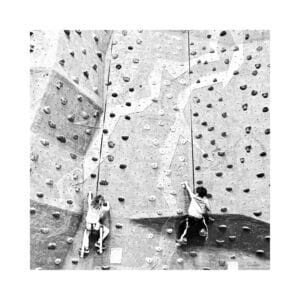A growth mindset is considered a key to success. Indeed, the buzz around growth mindset in corporations, education, parenting, leadership, and sports, is all over the place.
As parents, we wonder how to bring the growth mindset home as we want our kids to thrive and develop their potential.
While a growth mindset is perceived as a simple idea, it’s actually complex. It’s easy and common to misunderstand the theory, and consequently, implement it in ways that harm the relationships with our kids.
We have already taken the first steps into understanding the theory and why a growth mindset is important for parents’ growth, now let’s clarify why a growth mindset is NOT everything.
Mind the gap
First, let’s gain clarity on the gap.
A growth mindset leads to many benefits such as perseverance, resiliency, a can-do attitude, overcoming challenges, and more. Therefore, it’s intuitive to conclude that if we only nail a growth mindset, our kids will succeed. If they succeed, they will fulfill their potential. If that happens, they will be happy and they will make the most out of their lives.
The problem is we focus on assessing our kids’ behaviors as an indication of a growth mindset. For example,
- If we see them persevere, it means they have a growth mindset. YAY!! We are pleased to see that.
- If they don’t persevere, read: they give up, they have a fixed mindset. OH NO! Something is wrong. Fear and anger flow to “fix the problem”.
When we start thinking about the theory as a dichotomy, as of right or wrong, good or bad it shifts our focus from its essence – learning in progress. When we label, judge and blame, we don’t teach and don’t learn.
Time and again, I have witnessed the painful consequences at schools and homes (including mine). In the name of a growth mindset, we make choices or react in ways that negatively impact the two most precious things – the relationships we have with our kids and the relationships they have with themselves. Consequently, it impacts the atmosphere at home.
When we are so attached to the notion that “growth mindset is everything”, when we believe that growth mindset is the only thing our kids need (or that we need) in order to fulfill our potential, we might set our focus on proving a growth mindset, forcing it, demanding it, and constantly assessing it, rather than on focusing on what matters most – on learning, discovering, and on taking our skills and abilities to the next level.
How can we close the gap?
There are two steps to get started:
The first step is accepting the fact that there are various factors that impact our ability to learn and grow. For example:
- Physical needs (nutrition, water, shelter, rest, warmth, etc.) – it might be that when our kids are tired or hungry, they won’t have the energy to overcome challenges.
- Social and emotional needs
- Need for security – a sense of trust, belonging and feeling that we are being seen and considered. The confidence that we’ll be loved and taken care of even when we make mistakes, fail, or act in “disrespectful” ways.
- Need for freedom – being in an atmosphere in which we feel safe to share our minds, our truth, and be fully present.
- Passion – learning something we have a genuine passion for. Investing our efforts in it, even if it means that other areas will be neglected or slow in progress.
- How to develop abilities – The fact that we have the belief that we can grow our abilities doesn’t mean that we know how to develop abilities. It’s not just about hard work.
When we know that behaviors are also by-products of other factors such as our physiological and emotional needs, we can meet our kids where they and their brains truly are. What seems to be a fixed mindset, may be depleted energy, anxiety, or lack of interest. When we are tired, anxious or stressed, the brain’s capacity for learning is diminished.
The second step is to become a researcher. When you catch yourself wanting to blame or judge a behavior, ask yourself:
- I wonder what my kid needs at that moment?
- What can be done to cultivate growth? Be open to the idea that sometimes the answer is rest.
It’s not easy to realize that we misunderstood the theory or implemented it in ways that had an undesired impact. I hope you can find some comfort knowing that it’s common to misunderstand the theory. I misunderstood it too. Give yourself the permission to feel any emotions that come – sadness, pain, guilt. They signal how much you care about contributing to your kids. When you notice that you are ready to approach things differently, I hope this article can help you to do better. Together, we can shake off the misconception that growth mindset is everything so we can truly benefit from it. Onward!
—–
Sign up for the Becomers community newsletter, delivered each Thursday, for actionable guidance on your becoming journey.


